When Authoritarians Strike Back
The protests in Bahrain have taken a different path than those in Egypt.
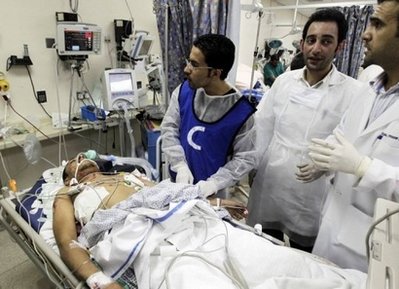 Via the BBC: Bahrain protests banned as military tightens grip
Via the BBC: Bahrain protests banned as military tightens grip
Protests have been banned in Bahrain and the military has been ordered to tighten its grip after the violent removal of anti-government demonstrators, state TV reports.
The army would take every measure necessary to preserve security, the interior ministry said.
Three people died and hundreds were hurt overnight as riot police broke up a protest camp in the capital Manama.
[…]
The capital has been effectively shut down, with tanks, army patrols and military checkpoints on key streets and helicopters deployed overhead.
Via WaPo: Deadly crackdown in Bahrain prompts threats of opposition party pullout
Police used tear gas, clubs and rubber bullets Thursday to break up a swelling anti-government demonstration in the heart of this country’s financial district. At least two people were killed, according to protesters, with others critically injured.
Members of the opposition Shiite Islamist party al-Wefaq said the party would withdraw from Bahrain’s legislature to protest the crackdown, which was the harshest here in at least a decade.
The raid took place hours after thousands of protesters gathered in the capital’s Pearl Square to demand greater political freedoms and more jobs. Some had escalated their demands to include the ouster of Bahrain’s prime minister, a member of the royal family who has served for nearly 40 years, and even an end to the al-Khalifa monarchy.
Hundreds of police officers surrounded a makeshift encampment – where many protesters, including women and children, were asleep in tents – and launched tear gas and rubber bullets.
The AFP is reporting four dead.
This is, sadly, what happens with the state is willing and able to deploy its coercive capabilities when it wants to hold onto power. The question at this point become whether the violence against the protestors with sufficiently suppress future protests or if it will stoke the anger of the populace. The knowledge that the state is willing to use deadly force against protests typically have a substantial deterrent effect, especially in regards to the common citizens who might be willing to engage in peaceful protests, but has no interest in being tear-gassed, let alone shot.
The violence here is a further reminder of the remarkable nature of what has happened in recent weeks in Tunisia and Egypt.
Photo source: AFP.


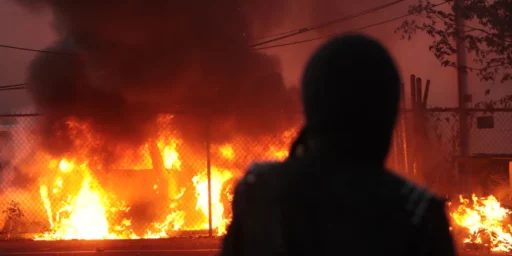
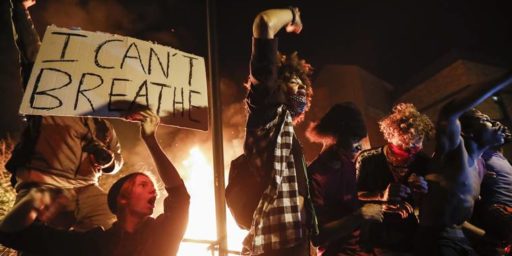
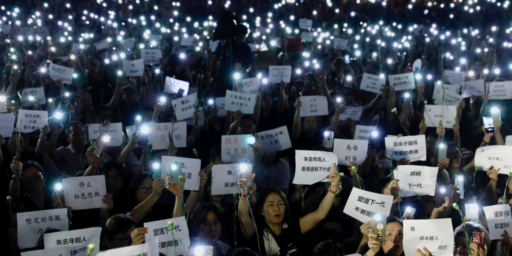
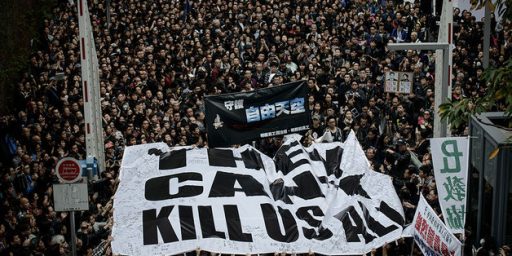
The moral of the story seem to be that popular protest is far less effective when the government has thorough control of the military. I wonder whether those same people will turn to radical Islamist organizations. By failing to respond to their grievances with anything other than violence, their governments have given them few alternatives.
Bahrain is under a time pressure.
The Formula One season is scheduled to kick off there in three weeks.
Interesting that all of the armchair freedom brigade on the far right have been utterly silent about the willingness of Muslims to risk their lives in the streets for freedom.